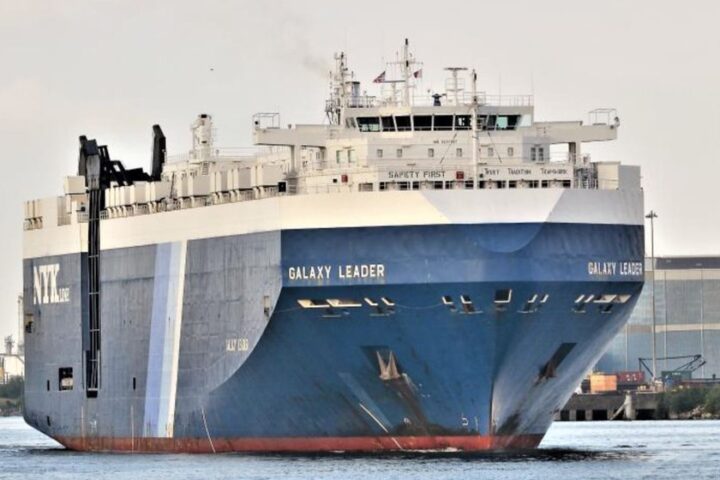The Cyprus Shipping Chamber fears if crew changes are delayed because of coronavirus, seafarers could go on strike and paralyse the maritime transport industry, at a time when nations are trying to lift lockdown and restart their economies.
The Chamber, whose members employ up to 60,000 seafarers onboard their vessels around the world, called on governments to follow the example of Cyprus and facilitate crew changes, as thousands of seafarers are stuck on vessels and cannot disembark or return home.
It issued a statement saying it was disappointed over global delays.
“Despite repeated appeals and proposals from the international shipping industry, there is a delay from governments in finding practical solutions to the very serious issue of crew changes and repatriation of seafarers with expired contracts, in many cases beyond three months, bringing seafarers and the shipping industry on the verge.”
CSC Managing Director Thomas Kazakos said government delays on crew changes are causing distress to the shipping industry and seafarers.
“Help bring these unseen heroes at sea back home, who worked hard all these months for all of us during COVID-19. They deserve it.”
He said that Cyprus facilitates crew changes and that all governments around the world need to act in a similar manner.
The International Maritime Transport Workers’ Federation (ITF) warned its seafarer members on Monday to stop working if their employment contracts have expired and they are awaiting repatriation.
The move from the ITF and its affiliated unions comes after months of calls on governments to designate seafarers as ‘key workers’ and exempt them from COVID-19 travel restrictions.
Cyprus has taken the bold move to acknowledge the status of seafarers as ‘key workers’, the same as frontline workers in essential services throughout the lockdown and quarantine measures, issuing procedures on May 14 for crew changes as part of the gradual lifting of restrictive measures imposed because of the pandemic.
Already, Cyprus has attracted six super-size passenger cruise ships for lay-ups until the cruise industry resumes sometime in October or November, with the Carnival Corp vessels anchored at the Moni mooring and contributing about €120,000 a month to the economy.
The revenues are estimated in mooring fees, refuelling and supplies, as well as facilities for crews to take departing flights home or to be relieved by fresh crews.
The island’s main airport at Larnaca opened to commercial schedules on June 9 and Paphos is expected to follow in July, with the arrival of holidaymakers also kick-starting the struggling tourist industry.
Each month, more than 100,000 seafarers around the world are subject to crew change to comply with international maritime regulations governing safe working hours and crew welfare.
However, in the early months of the pandemic, flag states, including Cyprus, requested to extend employment contracts and certificates to keep trade flowing.
Although some countries have moved to facilitate crew changes, an estimated 200,000 seafarers still remain stuck at sea, working on expired contracts while caught up in the crisis.
The Chamber joined a global appeal in April to G20 leaders to facilitate crew changes and safeguard access to healthcare onshore to these ‘unseen heroes’ of world trade.
Prisoners on board
Leading maritime hubs, including Cyprus, have been calling for the recognition of seafarers as “key workers” and for much-needed crew-exchange to be allowed at key ports during the pandemic, permitting seafarers to safely embark and disembark from vessels.
The Cyprus Shipping Chamber said, “despite the very difficult conditions and restrictive measures, that placed the entire planet under lockdown due to the Covid-19 pandemic, the 1.5 million seafarers worldwide continued to work tirelessly, transporting vital goods and keeping world trade in motion.”
“Without the immediate action of governments around the world, there is a serious risk that the supply chain will collapse very soon, with a negative impact on the economies of the countries which are already facing a crisis due to the pandemic.”
The Chamber called for governments to allow crew changes and repatriation of seafarers, using only the seaman’s book and without a visa, even if the documents have recently expired for those already onboard, always following the necessary safety procedures that safeguard public health.
It welcomed “the decision of the Cyprus government, which understanding the crucial role of shipping in international trade supported our industry and seafarers, by adopting measures early enough to facilitate crew changes in Cyprus ports, whilst ensuring the safety of public health.”
“We urgently call on all governments to act in a similar manner immediately, so that a viable solution can be found to this unacceptable situation that has kept our seafarers ‘captive’ onboard ships for months.”
A decree issued by the Cyprus Deputy Ministry of Shipping exempts from restrictions the crews of ships that are in warm lay up as well as crews of pleasure yachts.
The decree, however, prohibits crew members to disembark their vessels for any other reason other than crew change.
The Deputy Ministry of Shipping “recognised the essential importance of the maritime professions … and the problems due to the Covid-19 pandemic, particularly as regards crew changes.”
This was welcomed by the Cyprus maritime community, with CSC President Philippos Philis saying that “despite facing substantial economic and operational difficulties both internationally and locally, it remains one of the most important and productive sectors of the Cyprus economy (contributing 7% of GDP).”
In April, a Central Bank of Cyprus report said that revenues from ship-management companies, by far the biggest money earner for the maritime cluster, reached an all-time high of €581 mln in the second half of 2019, up €58 mln from the first half, to reach €1.104 bln for the year.
Core ship management services (crew, technical and full management operations) accounted for 79% of the industry’s revenues in 2H 2019, down from 83% in the first half of 2019.
Crew management services increased slightly to 49% of the total amount of ship management revenues in 2019H2.
Historically, the industry exhibits a relatively stable structure of expenses with the majority concerning crew expenses, which accounted for 64% of the total.
Most of these payments were to non-EU seafarers (46%).









